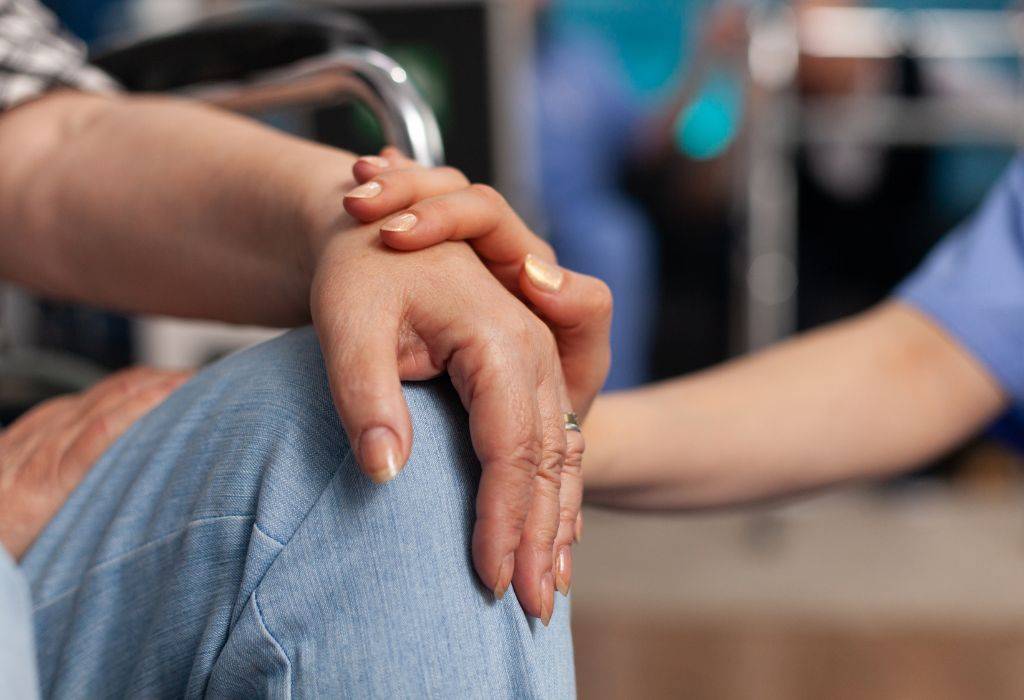Codependency, or “relationship addiction,” involves prioritizing a partner’s needs over one’s own, leading to lower self-esteem and higher social anxiety. Understanding that codependency often involves a caregiver role and a dependent role can help you see how these dynamics play out.
Educate yourself on how to stop being codependent, promote healthy relationship practices, and set boundaries to protect your well-being. Seeking professional help from a therapist can provide valuable insights and strategies for overcoming codependency. Remember, breaking these patterns takes time and effort, but it is essential for developing healthier, more balanced relationships.
Introduction – Codependency in a Relationship
Codependency in a relationship happens when one partner always puts the other’s needs first, ignoring their own. For example, one partner might constantly cancel plans with friends to care for the other, even when it’s not an emergency. This can lead to feeling tired and resentful.
Another example is when one person always handles the partner’s problems, like paying their bills or solving their work issues, which can make the partner reliant and not learn to manage independently.
Recognizing these patterns, setting boundaries, and learning how to stop being codependent can help create a healthier relationship. Therapy can even provide the required help and guidance.
What Are The Signs of Codependency
Codependency is characterized by several key signs that reveal an unhealthy dynamic in relationships.
-
Compulsive Need to be Needed
Codependent individuals often have a strong desire to be needed, and their efforts to rescue or support loved ones can become compulsive. This desire for validation through caregiving allows the dependent person to rely even more heavily on the codependent, creating a cycle of dependency.
-
Trapped in deteriorating Relationships
Codependents may experience satisfaction from their actions but can also feel trapped and resentful as their choices often backfire, leaving them feeling helpless yet unable to change the relationship. The quality of the relationship typically deteriorates over time, becoming filled with anxiety, frustration, and pity instead of love and comfort.
-
Feeling responsible for others’ actions
Codependent individuals often feel overly responsible for the actions and well-being of others. This misplaced sense of duty leads them to intervene or control situations, believing they must solve problems for those around them.
-
Taking on more than their fair share in relationships
Codependent individuals often assume excessive responsibility in relationships, doing more than their fair share. This imbalance arises from a want to be needed and can lead to burnout, bitterness, and a loss of personal identity.
Codependent individuals may consistently seek out relationships where they can play a caregiving or martyr role, neglecting their own needs and desires.
Why does someone feel Codependent?
Codependency often arises from low self-esteem and self-worth. People may believe their value comes from taking care of others, creating a compulsive need to be needed. Helping others becomes a way to gain the approval, love, and validation they lacked growing up.
Further, societal and cultural influences can back codependent behaviors. Traditional gender roles, for example, may encourage self-sacrifice and caregiving, particularly for women. Media portrayals of heroic selflessness can also contribute to the normalization of these traits.
Ultimately, codependency is a complex interplay of personal history, psychological needs, and social conditioning. Overcoming it requires recognizing these patterns, building self-esteem, and learning to set healthy boundaries in relationships.
How to stop being codependent?
Stopping codependency requires self-awareness, setting boundaries, and developing self-esteem. First, recognize the signs of codependency, such as constantly prioritizing others over yourself and seeking validation through others. Acknowledge your behavior patterns and understand their roots, often linked to past experiences or relationships.
-
Establishing Healthy Boundaries
Begin setting healthy boundaries by saying “no” when necessary and expressing your needs and desires. This helps you establish a sense of autonomy and self-respect. Practice self-care by engaging in activities that nurture your physical, emotional, and mental well-being.
-
Work on building self-esteem
Engage in positive self-talk, mark your achievements, and pursue hobbies or interests that bring you happiness and satisfaction. Surround yourself with supportive, healthy relationships that encourage mutual respect and independence.
-
Seeking Professional Support
Consider seeking professional help, such as therapy or support groups, to gain deeper insights and strategies for change. Therapy can provide tools to understand your behaviors and develop healthier coping mechanisms.
-
Practicing Patience and Personal Growth
Lastly, be patient with yourself. Changing long-established patterns takes time and effort. Celebrate small victories and remain committed to your growth journey. Over time, these steps can help you move away from codependency and towards healthier, more balanced relationships.
Tips to overcome codependency
Overcoming codependency can be challenging, but here are five tips to help you on your journey:
- Acknowledge and Accept
Recognize and accept that codependency is an issue in your life. The foremost step to making changes is becoming aware.
- Set Boundaries
Learn to establish and maintain healthy boundaries. This means awareness of your limits and expressing them clearly to others.
- Focus on Self-Care
Prioritize your own needs and well-being. Engage in activities that make you feel good and take care of your physical, emotional, and mental health.
- Practice Mindfulness
Mindfulness is the practice of being more aware of the present moment. Instead of getting stuck in the past or worrying about the future, you can learn to be present. Research has found that mindfulness can greatly lower anxiety and boost well-being, which are common issues for those with codependent behaviors.
- Work with a Therapist
Work with a therapist to understand and address codependent behaviors, develop healthier relationships, and build stronger personal boundaries. Professional guidance can provide valuable insights and personalized strategies for recovery.
FAQs
Que: What is codependency in a relationship?
Ans: Codependency occurs when one partner prioritizes the other’s needs over their own, leading to an imbalanced and unhealthy dynamic.
Que: What are common signs of codependency?
Ans: Signs include a compulsive need to be needed, feeling responsible for others’ actions, taking on too much responsibility, and feeling trapped in deteriorating relationships.
Que: Why do people become codependent?
Ans: Codependency often stems from low self-esteem, a need for validation, and societal influences that encourage self-sacrifice and caregiving.
Que: How can I stop being codependent?
Ans: Recognize the signs, set healthy boundaries, build self-esteem, and seek professional support. Practice self-care and be patient with the progress.
Que: What role does therapy play in overcoming codependency?
Ans: Therapy provides valuable insights, strategies for change, and support in developing healthier relationship patterns and personal boundaries.
Conclusion
Understanding how to stop being codependent and moving past codependency requires self-awareness, boundary-setting, and self-esteem building. Recognize unhealthy patterns, practice self-care, and seek professional support to foster healthier, more balanced relationships. Remember, overcoming codependency is a journey that takes time and effort, but it leads to greater well-being and stronger, more fulfilling connections.
Addressing these issues can develop healthier habits and create more equitable relationships. Don’t hesitate to seek help and support from professionals who can guide you through this transformative process. Take the first step towards a healthier life with BHouses today.










